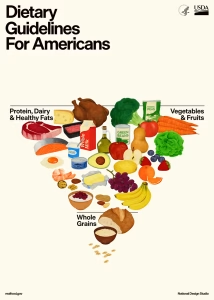I’m a cardiologist — this overprescribed drug taken by millions of people is toxic for your heart

This little pill — taken by adults and children alike — might just be a prescription for heart disease.
Dr. Evan Levine is an experienced cardiologist in Scarsdale, New York, who also runs a very popular TikTok channel, where he gets real about everything from heart attacks and health care quacks to the truth about your favorite Starbucks drink.
Speaking to The Post, the veteran heart doctor tackled a drug that is commonly prescribed to help children perform better on tests and sports — a phenomenon he calls “borderline child abuse.”

“There are two classes of stimulants for ADHD,” Levine said.
“One is the Ritalin-derived drugs called methylphenidates — Ritalin and Concerta are the most popular — and the other is the amphetamine class like Adderall and Vyvanse.”
Both types, he said, “increase the levels of norepinephrine in the blood, which can lead to slightly higher blood pressure and a mild increase in risk of arrhythmias.”
That might sound minor, but new research and common-sense questions have Levine sounding the alarm.
‘The FDA never did their job’
“In 2011, the Food and Drug Administration used a study to confirm the safety of these stimulant medications and they concluded — among young and middle-aged adults — [that there is] no increase in cardiovascular events,” Levine pointed out.
“But the study clearly states the average follow-up was only 1.3 years,” he added. “So, yeah, young healthy people have no risk at 1.3 years with elevated norepinephrine levels in their blood.”
Here comes the however.
“We know that very elevated levels of norepinephrine for years, like in people with adrenal tumors and heart failure, can adversely affect the heart — levels are much higher here,” Levine said.
“What if a child takes this for 20 years? The FDA never commented on this. Or an elderly patient takes this — or anyone at risk, people with congenital heart conditions like a bicuspid aortic valve, which 1.5% of the population has and are at risk for aortic aneurysms? The FDA never did their job.”
And now? The longer-term data is starting to back him up.
“In April 2024, they find that when you follow them up for eight years, young healthy people aged 20 to 40, they have a 57% higher risk than young healthy people not on these meds,” Levine said.
“It ends up that 1/500 of these patients were diagnosed with a cardiomyopathy.”

Millions of kids could be at risk
Levine, who also tackled the subject on TikTok, noted that the sheer volume of Americans taking these meds could be a ticking time bomb — recent data suggested 1 in 9 kids these days have been diagnosed with ADHD.
“The numbers of young adults on this since childhood can be significant,” he said.
But it’s not just kids: A recent study showed 1 in 17 adults have been diagnosed with ADHD, and some experts questioned whether or not all of these cases are legitimate.
Levine said people are taking it without an ADHD diagnosis, only to help them “focus better on exams or perform better in sports.”
Plus, he added, the drugs may have a greater risk for adults who may have hypertension or underlying heart disease.

‘Like a local drug dealer meets telemedicine’
Telehealth services have supercharged the trend, Levine warned — potentially making the drugs available to anyone with a credit card and Wi-Fi access.
“Who is vetting these services? ‘Hi, my name is Evan and I cannot concentrate and need some Adderall. Thank you,’” he said.
According to Levine, what’s lacking is comprehensive mental health care and careful consideration of non-stimulant options.
“With better behavioral health, available psychiatric evaluation and alternatives like non-stimulants, of course the amount of prescriptions for these drugs will diminish,” he said.
A loophole in plain sight
Levine pointed out that these meds are taken seriously — even banned — in certain fields unless a formal diagnosis is proven.
“In Olympic sports, you need to apply for an exemption and demonstrate you have ADHD. Otherwise, you are disqualified,” he said.
“One can only guess there are some that claim a diagnosis to improve their ability and concentration in a sport.”
So, what now? For Levine, the message is simple: ADHD should absolutely be treated — but with more caution, more oversight and less blind trust in pills.


